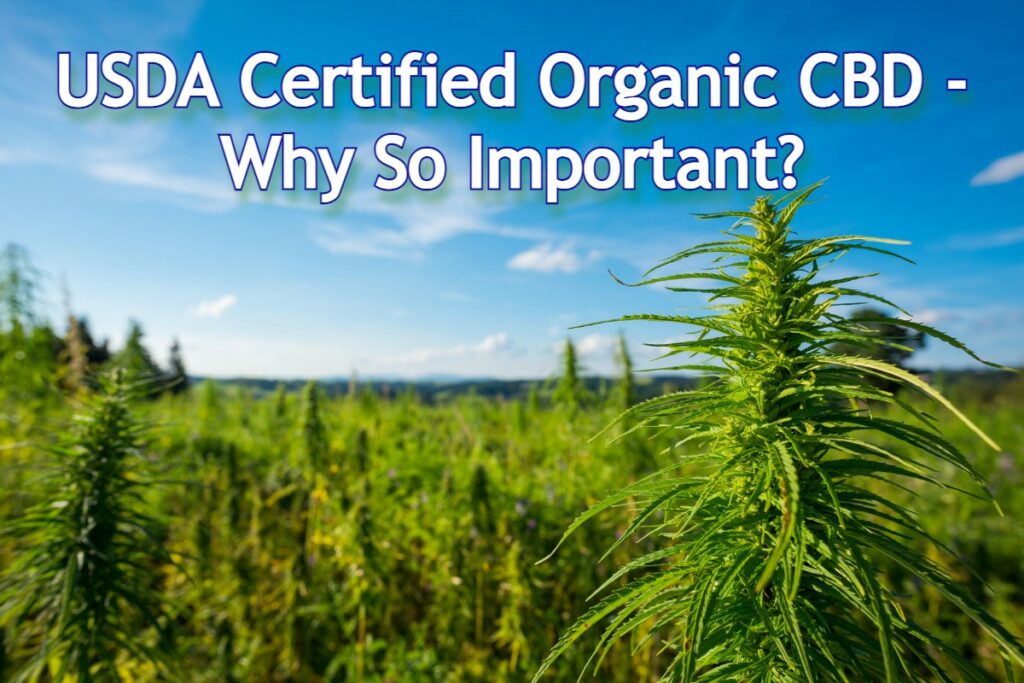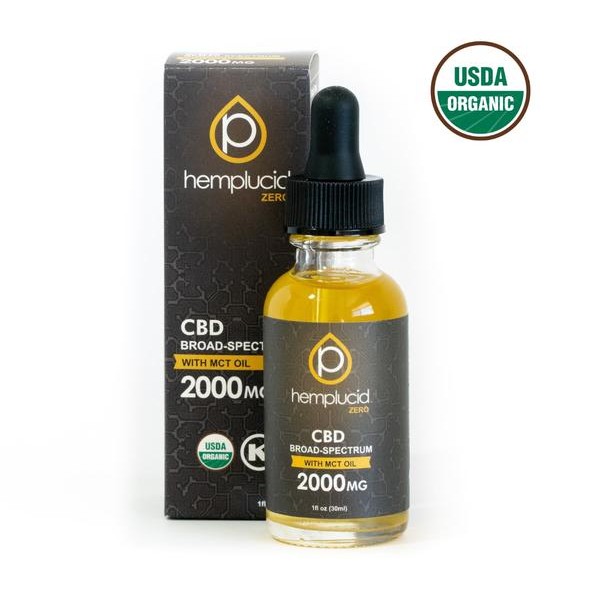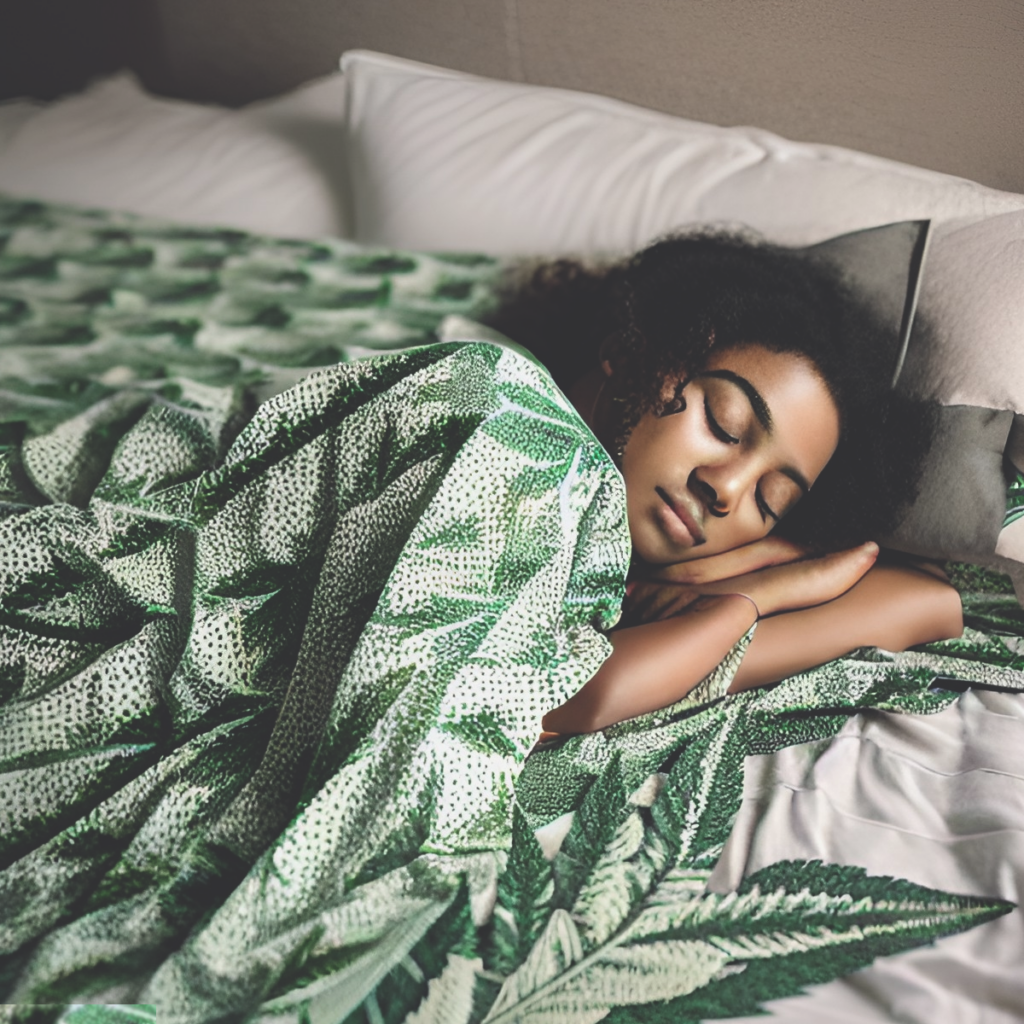CBD has been gaining popularity in the past few years. But along with that popularity, there are a lot of buzzwords surrounding CBD that might be difficult to navigate. One of those words is ‘organic’. We wanted to clear up some misconceptions around this word, to make your CBD shopping experience a little easier and more enjoyable, as well as more effective.
Why is USDA Certified Organic CBD Important?
Hemp, which is the plant that CBD is derived from, is kind of unique in the way that it interacts with its environment. Hemp is a bioaccumulator, which means that it has the ability to draw everything from the soil, including chemical pesticides, traces of heavy metals, and other residual chemicals. This is really helpful when trying to clean the soil up for future crops, but not so helpful when you’re going to be ingesting the CBD from those hemp plants.
The bottom line of this is, if you’re not getting USDA certified organic CBD, there’s really no way of knowing what exactly is in the CBD you’re buying. This can affect the benefits you may experience by using CBD, and in some cases, can be pretty harmful to your body. The USDA certified organic seal is kind of a big deal.
Growing Organic Hemp
How is organic hemp grown? In order to be USDA certified organic hemp, there are several stringent requirements that must be met. There can’t be chemical pesticides used on the soil for at least 3 years before the hemp has been planted, and that compliance has to keep up for as long as the farm is certified.
The extraction process is also closely monitored. There are only a couple of extraction processes that are allowed in order to be certified organic. CBD has to be extracted using one of these methods to be considered organic.
In order to be certified organic, the hemp plants also can’t come from GMO products. Everything involved has to be as natural as possible.
Other ingredients used in the CBD product have to be certified organic as well. Whether that is the carrier oil used, or any flavorings added, or anything else included in the product, they have to be organic.
A third party has to certify all of this for the farm growing the hemp. The farm has to be checked regularly, and keep to these requirements. They also have to pay fees to be USDA certified organic. So, you know that something is good if it’s USDA certified organic.
Benefits of Organic CBD
When farmers grow organic hemp to be made into organic CBD, it benefits the environment as well as the consumers (that’s YOU!). For one thing, being certified organic means that there are no harmful chemicals used as pesticides, or synthetic fertilizers used on the soil. Chemical pesticides don’t differentiate between good pests and bad pests. They kill all of the bugs around, which disrupts the ecosystem and kills important pollinators.
Harmful chemical pesticides also eventually end up in the ocean. Then, the damage spreads further. These chemicals can kill ocean occupants, and sometimes result in dangerous algae that continues to cause damage.
Without the chemicals and synthetic fertilizers, the soil stays healthier for a longer period. The nutrients aren’t being stripped from it on a regular basis, and are instead left alone to keep the nutrients the plants need.
Since organic hemp is grown without these chemicals, it is better for you, as the consumer. The soil doesn’t have as many unhealthy chemicals to absorb into the plant, so it can’t pass it on to you. Along with that, the hemp is more nutrient dense, which passes more benefits onto you. Sign us up! If you agree with us, read on to see how to find your optimal organic CBD product.
Choosing Organic CBD
Knowing all of this information, now it’s time to find an organic CBD product that works for you. There are a lot of them out there, and it can be difficult to find the right one for you. And that’s where we come in! We have a full line of USDA certified Organic CBD products including, but not limited to vegan water soluble CBD oil, CBD in MCT oil tinctures, and even CBD oil for your pet!
There is something here for everyone, and they are all stamped with the USDA seal to show you that you can trust our products. We can help you find the ideal product for you to experience the optimal benefits of CBD for you.
Our CBD all comes from hemp grown in the U.S.A, and extracted by an approved method. We also use hemp seeds that are natural and proven to be fantastic. We searched long and hard for seeds that we felt good about growing and selling products from, and we think we hit the jackpot. You may agree with us after you try our products.
If you’re still not sure, you can also check lab test results and quality control for your product with our lot code search. These will give you a lot of helpful information about the product you’ve bought. We do everything that we can to make you as confident in your purchase as possible.
We also make it a point to be as transparent as possible with our consumers and our community about our growing, extraction, and creation processes. When you buy with us, you can be assured that you’re buying one of the best products on the market (in our humble opinion). We only sell you products that we use ourselves.
Now What?
Now, get out there and buy CBD with confidence! Adventure is waiting for you: you just have to be willing to answer the call. The benefits you can get from using CBD can help you take charge of your own wellness, and take you to the next level.
Shop The Mass Apothecary Online CBD Store for your new favorite CBD product. If you’re still not sure where to start, please contact us and we will assist you in everyway possible. This also includes free CBD education consultations and personalized product recommendations for your personal needs! We’d love to help you find the perfect product for you.
Did you know that we have USDA certified organic CBD products? Are you excited to try out something new? Let us know in the comments, and let’s have a chat! We are always available and would absolutely love to have a conversation with you, and answer any questions that you might have.








